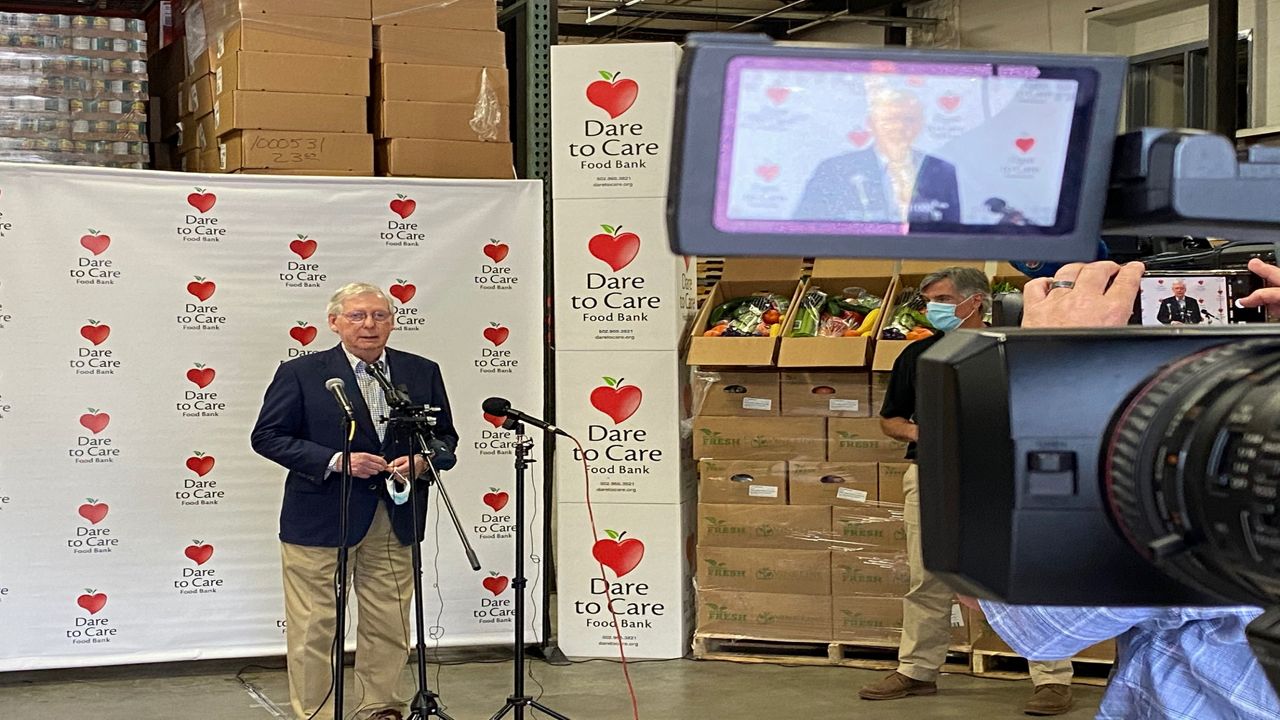FRANKLIN, Ky. — The coronavirus isn't the only crisis Kentucky and other states deal with daily. Drug abuse remains high in the state.
McConnell and Office of National Drug Control Policy Director, Jim Carroll, held a press conference Tuesday where they named Logan and Simpson Counties as part of the Appalachia High Drug Intensity Drug Trafficking Program, a national anti-drug program. The program is designed to combat drug addiction, disparities, and trafficking in counties across America. Federal funding for the program will allow for advanced technology and resources for police drug task forces, and provide more support surrounding healthcare.
The program will aid in resources for both the drug epidemic and the coronavirus pandemic. Offering help regarding telehealth and recovery programs, McConnell said that the program needed to be multi-faceted to have a greater impact.
“If any of you are on a hospital board you know the decision to shut down elected surgery delayed unrelated health concerns, unrelated to COVID, on the shelf, so they were basically put off from being addressed,” said McConnell.
The anti-drug program will give $23,000 to the Franklin Housing Authority in Simpson County, and $4.2 million to the Logan County Hospital. The program is a product of legislators on all levels working together. McConnell and Carroll were joined by Rep. James Comer, Simpson County Judge-Executive Mason Barnes, South-central Drug Task Force Director, Jacky Hunt. McConnell thanked Carroll for recognizing the effort needed in the Commonwealth.
"We continue the fight and I can’t thank Jim Carroll enough for the focus that he’s been willing to put on Kentucky. This has been one heck of a fight only made more difficult, by the pandemic that we find ourselves in now,” said McConnell.
Carroll highlighted the importance of recognizing the different needs of rural and urban communities. Working alongside many federal organizations the program will offer special resources including health, communication, job security, and transportation for rural and indigenous communities. Putting together the Rural Community Action Guide will help citizens in Simpson and Logan recognize various resources offered to them on the local and federal level.
“It's a resource for communities like this. It's the ability to make sure they get the resources they need not just from my office but from across the federal government,” said Carroll.








